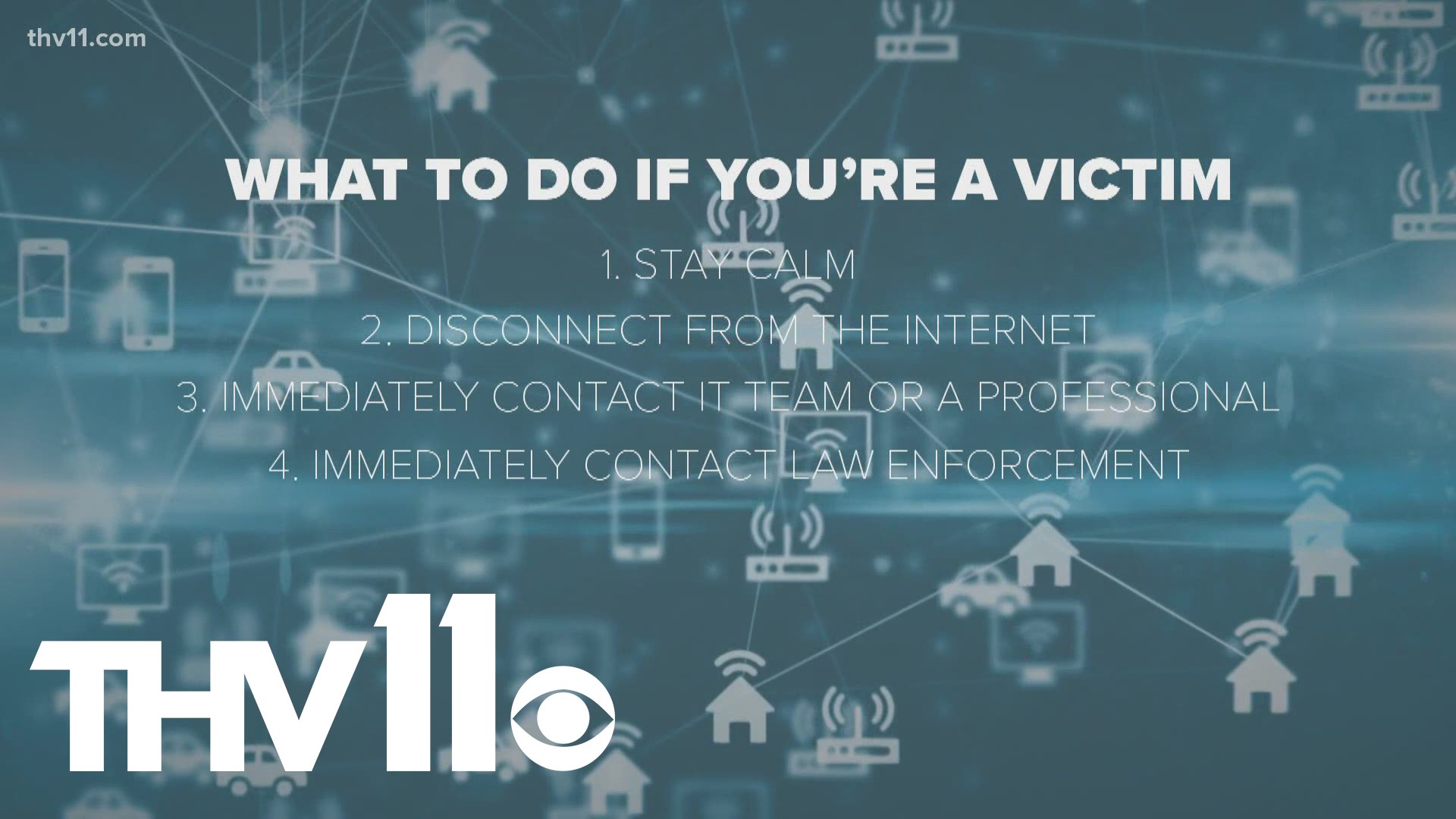LITTLE ROCK, Ark. — We first told you Tuesday about a cyberattack on the world's largest meat supplier halting U.S. operations, just weeks after the colonial pipeline shutdown.
So, with two cyberattacks on two major corporations, how can you protect yourself or your business?
Daniel Weatherly, the Director of Security Services at Mainstream Technologies Inc., said these cyberattacks have gotten worse in the last couple of years and they won't be going away any time soon.
"All of our lives are out there in the cloud— in the internet— and the bad guys know it and they see any easy opportunity to make money," he said.
With just a click of a button, two major companies in a span of just weeks have fallen victim to ransomware attacks disguised as something harmless, according to Weatherly.
"These happened through people, whether they're clicking a link in an email or they're opening a document that has malicious code inside of it," he said.
Weatherly said this stuff happens more often than we think. Daily, businesses big and small have data stolen and sometimes are forced to pay to get their systems back.
"It's not uncommon. These are very large companies though, which is why it's making an impact on people's lives like you and me where a lot of times it just affects that company," he said.
According to Weatherly, there are basic prevention techniques all companies should be doing.
First, awareness training for employees to make sure they know what to look out for.
Second, systems and software should be up-to-date and patched weekly.
Other things like antivirus software and services that automatically block bad sites are inexpensive solutions too.
According to Cara Carlin, with the Arkansas Better Business Bureau, small businesses and the average consumer are the hackers' primary targets.
"It's been a prominent problem for a long time now, but more and more small businesses are moving to the digital space," she said.
If you become that target, Carlin said the best thing to do is stay calm, disconnect from the internet and immediately contact your IT team and local law enforcement.
"It's not going away any time soon. Reporting and doing your due diligence to protect yourself and your business is the best that we can do right now," she said.
Weatherly said whether or not businesses should pay that ransom depends, in his opinion.
He said if your business can survive without paying, don't pay because it's just fueling the scammers.
Although, if you need to pay it for your business to survive, Weatherly said that's a tough choice.

